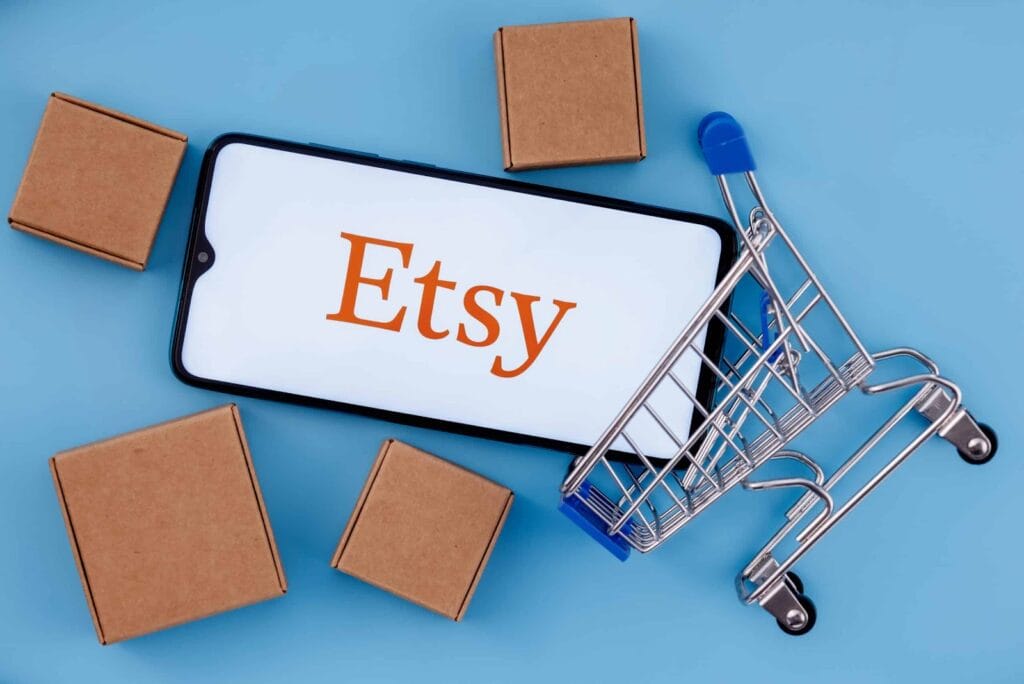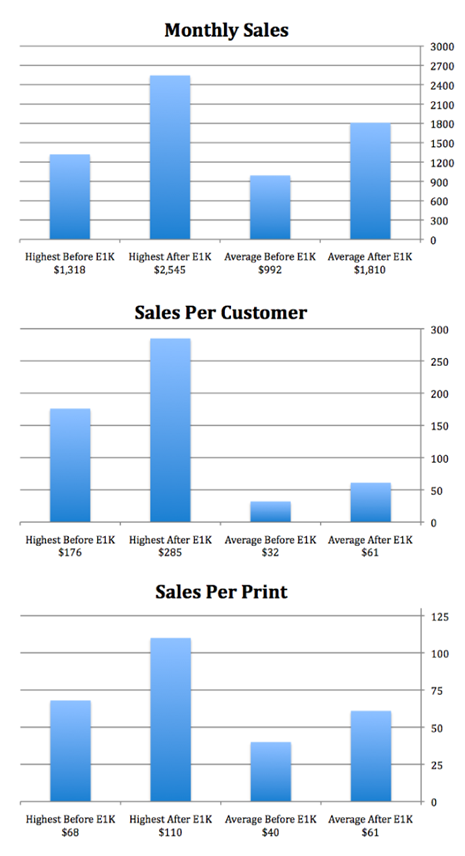How to Sell Art On Etsy: Case Study of a 22-Year Old Who Made $28,139


So you want to know how to sell art on Etsy...
I have something special for you today. One of my students meticulously tracks his data for selling artwork via his Etsy shop - and agreed to show you some of those numbers to demonstrate how powerful this material can be.
We all know how secretive most entrepreneurs are about their numbers, so it’s a treat to get a look behind the veil.


Ben doesn’t have a tech or business background. He took my systems and applied it to his business: selling posters on Etsy.
So when I hear people saying, “Yeah, that might work for ___, but not for me because I’m [INSERT SEEMINGLY UNIQUE CHARACTERISTIC THAT IS REALLY JUST A PSYCHOLOGICAL BARRIER],” I smile.
Whether you’re a food salesman getting inside his client’s head, pilates instructor niching down to double her clients, or artist selling online -- like I’m going to introduce you to today -- the fundamentals of building a successful side income are the same.
Let’s start by examining real data from one of my students.
Let’s focus in on two numbers. The 61.9% increase in highest sales to a customer from $176 to $285, and the 90.6% increase in average sales to a customer, from $32 to $61.How did he do this?
Besides increasing prices (and value), Ben implemented a simple but incredibly effective technique for increasing sales: cross-selling related products.
I love this story.
The Economics of T-Shirts and how to sell art on Etsy
Back in June 2007, Ben graduated from his high school in small-town Utah. Seventeen years old, he wanted to earn money online.
“I taught myself screen printing via YouTube videos, and started selling these really weird looking t-shirts on Etsy.”
In the first year, he made about $1,000.
“I didn’t really know what I was doing. So I would draw things and photograph them with a really crappy camera, the quality wasn’t there to compete against the entire internet.”
Then he had an epiphany.
“t-shirts cost about $5 per unit, and paper costs maybe $1 per sheet. Nobody wants to buy a $50 t-shirt, but on paper, you can make a lot more.
Tees were screwing me, so I started printing on paper.”
Soon after, he found IWTYTBR.
“Summer 2009 I was searching for personal finance stuff. I actually found Ramit’s site, and I thought he was crazy. So, I didn’t go back for like a year after that.”
At this point, Ben had a business, but it wasn’t going great.
"I didn’t really think of myself as an entrepreneur. I thought I was some kid selling artwork.
I went back to read Ramit’s stuff, and it really fit the way I saw the world - when I found Ramit's course it just made sense.
I looked at the payment plan and figured out how I would make the payments. The price was reasonable and I could afford it, so I bought.”
My course took Ben from being “some kid selling artwork” to an entrepreneur using proven techniques to grow his business.
A simple technique that doubled his sales
“As I watched the videos, I started thinking maybe I could do some freelancing.
But then I got the final module about how to optimize your system, and Ramit was saying all this stuff, and I was like ‘whoa, I’ve already got a system!’
Then ‘how can I take this stuff and apply it to my art?’ So I went back and re-listened to all the sections.”
A big part of optimizing any system is the willingness to test assumptions.
“I experimented with different drawings, colors of ink and paper, and prices.
Before the course I was pricing very low, probably $25 for a poster, because I noticed others in the market were charging that.
Now I’m getting $110, and I want to try one at $200.”
Here’s the test that nearly doubled Ben’s sales.
“Before the course I had several people purchase 2-3 prints at a time. We all love collecting things.
After listening to the material on up-selling, I realized people were up-selling themselves, all I had to do was supply a particular collection they might want. In the beginning, I was selling all on white, so I tried a few on black, brown or cream.
Those would sell, so I printed more on those colors and people started buying multiples on just brown or black. Then I’d try red or black ink and people would purchase 2-3 with that same color scenario.”
Ben had tapped into his customers’ love for collections - nearly doubling his sales per checkout, and earned $5,430 in the next 3 months. Since then, he’s streamlined his business and earned another $7,722.
I’m aiming for a $5,000 month, a $10,000 month, a $1,000 day.
“I love doing this. I love every aspect of running a business and giving people what they want.
The end goal is to do the exact same thing I’m doing now just on a larger scale, I want to create more value and aim for a $5,000 month, a $10,000 month, a $1,000 day.”
Ben will continue using my optimization techniques to nail every one of those goals and had some terrific advice for other would-be creatives selling online.
“Most artists want to sell their work, but they don’t care about learning the process to sell, so there is a ton of stuff out there that will just never sell. The entire course helped solidify how a typical business system might work.
Before I took it I had nothing to go off of, it was a guessing game on what I should do and I had no idea how to grow a business or even what details to pay attention to.
Now I have spreadsheets filled with various data: financial, stock of supplies, stock of prints, how many people visited my website, how many purchased. The key thing was to make the course fit my situation.”
P.S. For more insights, check out this studio session "How much should you invest in your business?"